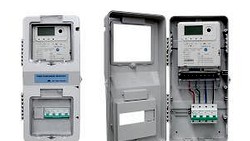Altitude is a crucial factor that can significantly impact the performance and reliability of electrical equipment. As electrical systems are deployed at various elevations, it becomes essential to understand the potential failures that can occur due to altitude-related factors. In this blog post, we will explore the effects of altitude on electrical equipment based on our experience and discuss the key components that are susceptible to failure in high-altitude environments.

- Insulation Breakdown
At higher altitudes, the air density decreases, resulting in lower dielectric strength. This reduction in dielectric strength can lead to insulation breakdown in electrical equipment. Insulating materials, such as cables, transformers, and capacitors, may experience increased stress and exhibit a higher risk of failure, potentially leading to short circuits or equipment damage. - Cooling Efficiency
As altitude increases, the air density decreases, affecting the cooling efficiency of electrical equipment. Cooling systems, such as fans and heat sinks, rely on air circulation to dissipate heat generated during operation. In high-altitude areas, the reduced air density results in less efficient heat transfer, leading to elevated temperatures within the equipment. This can cause overheating, reduced performance, and even premature failure of critical components. - Voltage Regulation
Altitude can also affect voltage regulation in electrical systems. Due to the reduced air density, power transmission and distribution lines may experience higher voltage drops, leading to poor voltage regulation. This can impact the performance of sensitive equipment, such as computers, control systems, and precision instruments, which rely on stable and accurate voltage levels for optimal operation. - Mechanical Stress
In high-altitude regions, the lower atmospheric pressure exerts less force on electrical equipment, resulting in decreased mechanical stress. However, this can introduce new challenges. Equipment designed for lower altitudes may not be adequately reinforced to withstand the lower mechanical stress, potentially leading to structural integrity issues or unexpected failures. - Equipment Ratings and Standards
It is important to consider altitude when selecting electrical equipment. Professional manufacturers like CLOU often specify altitude limits for their products, indicating the maximum elevation at which the equipment can reliably operate. It is crucial to adhere to these specifications and select equipment that is designed and rated for the specific altitude conditions of the installation location.
Takeaway
Altitude plays a significant role in the performance and reliability of electrical equipment. Factors such as insulation breakdown, cooling efficiency, voltage regulation, mechanical stress, and equipment ratings must be considered to mitigate potential failures. When operating electrical systems at higher altitudes, it is crucial to consult with manufacturers, adhere to altitude-specific guidelines, and implement appropriate measures to ensure the safe and reliable operation of electrical equipment in challenging altitude environments.
At CLOU, we prioritize the environmental suitability of our solutions. Contact us today to discuss your specific application and environmental requirements. Our knowledgeable team at CLOU is here to provide expert guidance and find the right solution for your electrical needs.
Editor's note: This article was originally published in June 2023 and has been updated for comprehensiveness.





We are planning to use UG armoured cable at high altitude >3600masl and temperature :>-15 deg. Is it safe to use normal UG cable rated at 2400m and ambient temperature: -10deg and +40deg for solar off grid plant.
Will it effect the voltage and performance of the cable as we have to cut and joint the cable at multiple points due to transportation limitations.
Thank you for your question. Deploying underground (UG) armoured cables beyond their rated specifications, like at high altitudes and lower temperatures, raises valid concerns. Cables are designed and insulated for specific conditions, and operating outside those parameters carries risks and potential performance degradation. At higher altitudes, lower air pressure can affect cable insulation properties and heat dissipation. Colder temperatures can make insulation more brittle, leading to cracking during handling, cutting, and jointing.
Altitude and temperature can also influence the dielectric strength of insulation material, affecting voltage performance. However, if the voltage level remains within the cable's rated capacity, the primary concern at high altitudes is the potential for partial discharge due to reduced air pressure.
Cutting and making joints in the cable introduce potential points of failure and electrical resistance, impacting performance. Precise jointing is crucial, with proper sealing to prevent moisture ingress, which could be aggravated by cold conditions. To address these concerns, it is advisable to consult the cable manufacturer. They can recommend cables suitable for high altitudes and low temperatures, or provide guidelines for safe installation and handling in such environments.